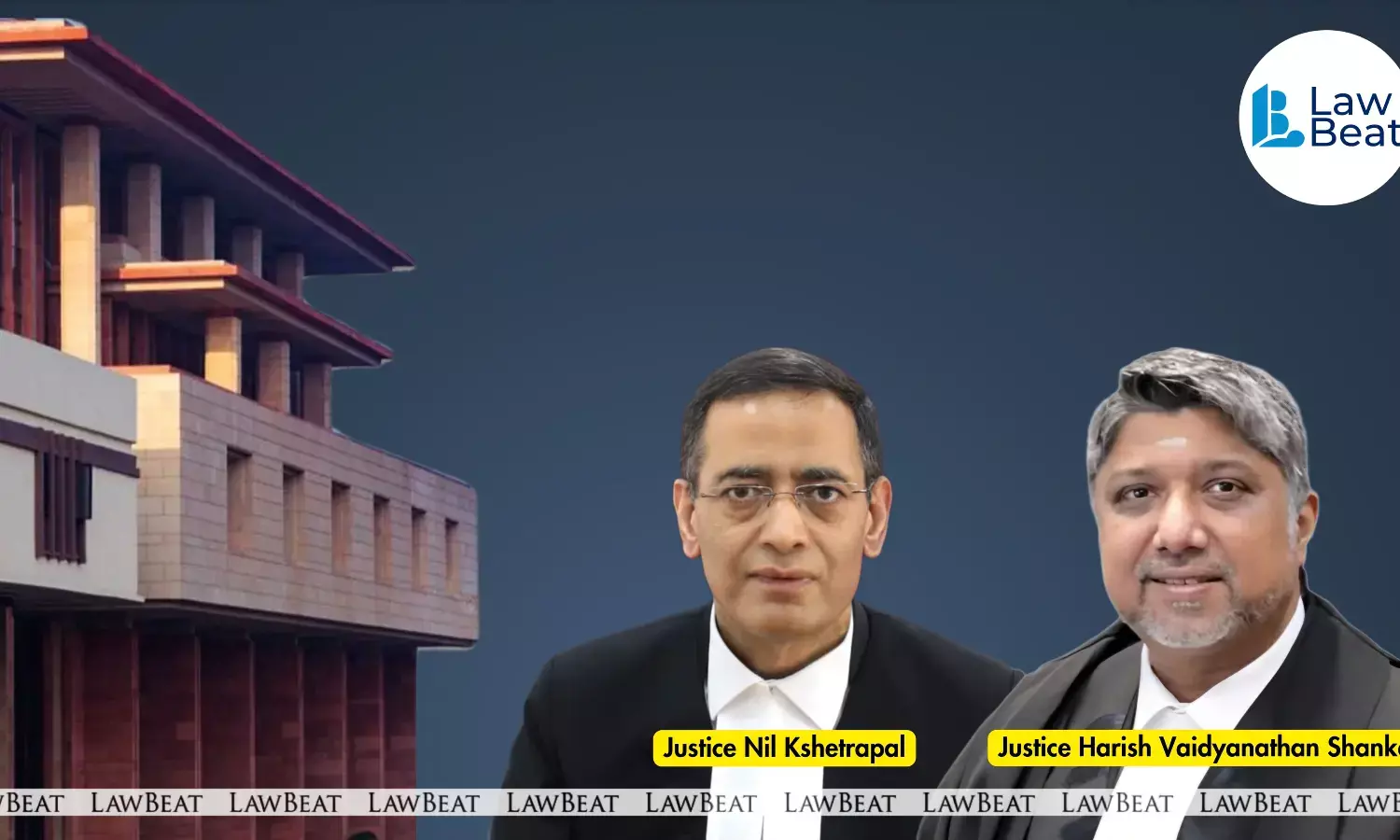Child Custody Decisions Must Prioritise Minor’s Welfare Over Parents’ Rights: Delhi HC

The Delhi High Court has dismissed a father’s appeal challenging a family court order that denied him permanent custody of his seven-year-old son, upholding instead the mother’s right to continue as the child’s primary caregiver.
The Court reiterated that in custody disputes, the child’s welfare, not parental rights or financial superiority, remains the paramount consideration.
The Appeal arose from a May 19, 2025, order of the Family Court, Delhi, which had dismissed the father’s guardianship petition under Section 25 of the Guardians and Wards Act, 1890. While denying custody, the Family Court had granted him limited visitation rights, restricted to two hours on the first and third Saturday of every month, within the Children’s Room at the court premises.
The appellant-father married the respondent in November 2016, and their son was born in April 2018. The child, diagnosed with clubfoot at birth, was successfully treated within a few years. However, disputes between the parents led to the mother leaving the matrimonial home in October 2021, after which she retained exclusive custody of the child.
The father sought custody on the ground that he was financially better placed to care for the child and argued that he, along with his parents, had looked after the child during the mother’s frequent stays at her parental home. He further alleged that the mother failed to prioritize the child’s welfare.
The mother, on the other hand, accused the father of refusing financial support for the child’s medical needs, including surgery for a squint eye condition in 2021. She alleged persistent dowry-related harassment and claimed she was ousted from the matrimonial home along with her son. Since then, she maintained sole responsibility for his healthcare, education, and upbringing.
The Family Court, after interacting with the child, found him to be well-adjusted, emotionally secure, and comfortable in his mother’s care. The Court noted that the mother had been diligently attending to his medical and educational needs, including financing his surgery without the father’s assistance. Concluding that no material indicated neglect on her part, the Family Court dismissed the father’s custody claim while granting limited visitation rights.
Upholding the Family Court’s order, Justice Nil Kshetrapal and Justice Harish Vaidyanathan Shankar reiterated that the principle of child welfare under Section 13 of the Act is the guiding standard in custody cases. The Court stressed that financial stability alone cannot override the child’s emotional well-being and sense of security.
“The preference expressed by the child, though not decisive by itself, is a relevant factor, particularly when it reflects emotional security and continuity in caregiving,” the Court observed.
Citing the Supreme Court’s decision in Rosy Jacob v. Jacob A. Chakramakkal (1973), the High Court underlined that children are not “chattels or playthings in the hands of parents” and that parental rights must yield to the best interests of the child. The role of the court, it said, is that of parens patriae, to act as the guardian of the child’s welfare, not as an umpire between warring parents.
Rejecting the father’s grievance that the visitation rights were too limited, the Court noted that cautious and gradual access was appropriate to avoid any disruption to the child’s stability. It clarified that visitation arrangements are subject to review if circumstances evolve or the child becomes more receptive to expanded interaction.
Finding no procedural infirmity or misapplication of legal principles by the Family Court, the Delhi High Court dismissed the father’s appeal. It concluded that the mother’s continued custody best served the child’s welfare, while visitation rights allowed the father an opportunity to maintain a bond.
“The assessment of the minor child’s welfare, grounded in direct interaction and careful consideration of the circumstances, does not warrant interference in appellate jurisdiction,” the Court held.
The Appeal and pending applications were accordingly dismissed.
Case Title: Hitesh Mehta v. Priya Mehta
Judgment Date: August 13, 2025
Bench: Justice Anil Kshetarpal and Justice Harish Vaidyanathan Shankar
